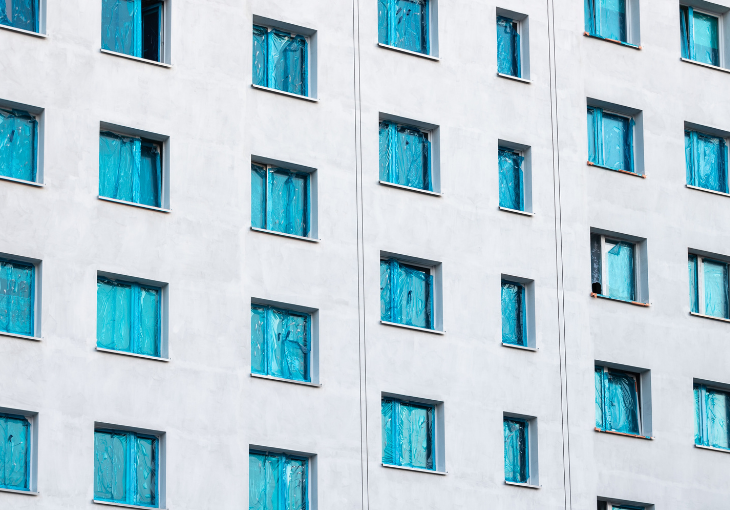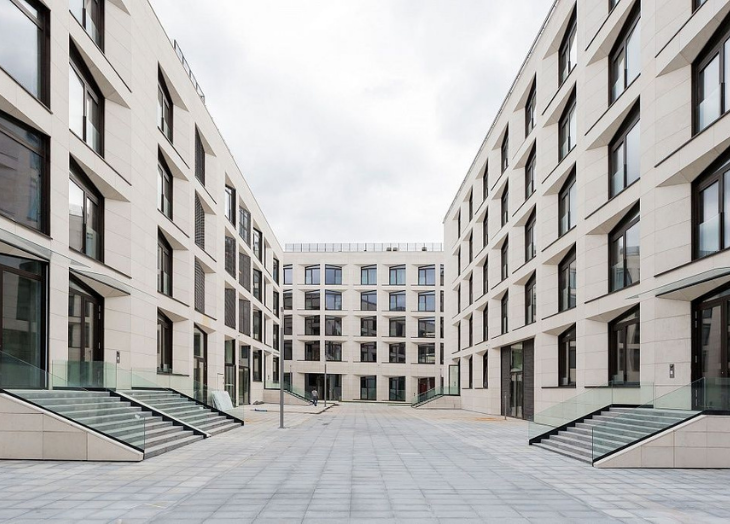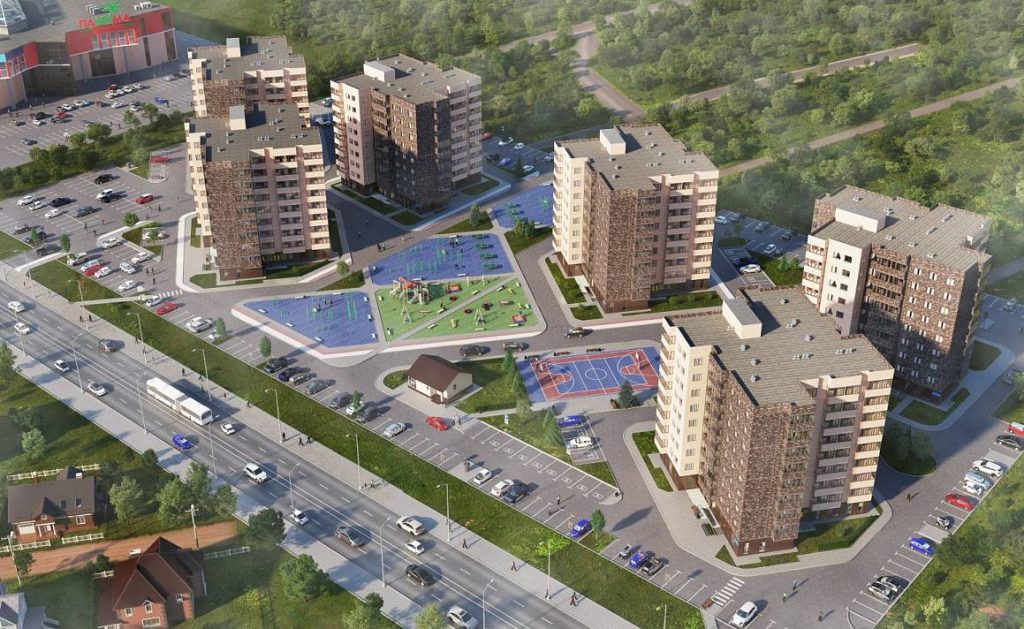The announcement of Deputy Minister Nikita Stasishin that "it’s time to close up shop" caught the market by surprise. Let's admit the obvious: it is long past time to officially decide on the format of apartments. On the one hand, the spaces are sold for living, but under a "commercial" name and equated in status to parking places, storerooms, etc. Then why not use them, let's say, for a beauty salon or a bakery, a photo studio or an auto parts store? Or, if they are residential spaces, why is it impossible to get a residence registration there like it was allowed to do for summer cottages not so long ago? More and more questions are appearing.
No residence registration
Apartments as a separate segment of the real estate market began to appear during the crisis of 2008 when developers began to redesign unclaimed office spaces. Then, a new rationale activated: it is logical to live where you work. And apartments became an integral part of mixed-use centers, where business spaces, dwellings, and amenities – cafes, restaurants, shops, children's play clubs, cinemas, etc. – were all located nearby. This format gradually gained momentum, and its popularity reached its highs during the period of mass redevelopment of industrial sites.
According to Irina Dobrokhotova, Chairman of the Board of Directors of BEST-Novostroy, apartments are currently built and sold in 9 regions of Russia, not to mention Moscow and St. Petersburg: these include Nizhny Novgorod, Tyumen, Kazan, Krasnodar, Sochi, and others. But if originally these were fashionable dwellings, mostly loft-style ones, and exclusively within redevelopment projects, then by 2013, apartments began to be built as new buildings, and in Moscow this format even went beyond the Third Ring Road.
That was a remarkable phenomenon: developers had got the opportunity to implement large projects on cheaper sites, buyers – to buy housing at prices significantly lower than those of flats officially recognized as housing.
"Indeed, the popularity of apartments among buyers was primarily due to the more favorable prices. They are usually 10-15% cheaper than flats with similar characteristics in the same location. Another advantage of apartments is often their location. Legally speaking, they are not considered housing, so they can be built on sites inappropriate for ordinary housing.
For example, in some areas in the city center (which is especially relevant for such megalopolises as Moscow with a shortage of land plots available for housing), in the immediate vicinity of transport hubs or within large business districts. For developers, apartments are also advantageous since, unlike for ordinary housing, they do not imply strict obligations for the construction of social infrastructure,"
– says Irina Dobrokhotova, Chairman of the Board of Directors of BEST-Novostroy
As of now, according to bnMAP.pro, 101 apartment projects are under construction within the old borders of Moscow, of which 43 are of elite and premium category, and another 41 projects are of business class. Demand for apartments in other regions of Russia is not so high. Even in the Moscow region (Podmoskovye) and New Moscow, their number is several times less than in the capital (for example, this format can be found in only 2 residential projects in New Moscow and in 5 projects in the Moscow region).
Balchug Residence Apartment Estate, Moscow
Irina Dobrokhotova explains the generally low popularity of apartments in the regions by several reasons. The main cause is high competition with "traditional" housing. Given the non-residential status of apartments, home buyers exercise enviable conservatism and prefer flats guaranteeing residence registration, application of mortgage loans, subsidies, tax deductions, etc.
More than life at stake
According to Natalia Kuznetsova, General Director of BON TON Real Estate Agency, there are already several types of apartments: mixed-use centers (separate units in office buildings), apartment hotels, and serviced apartments (managed by hospitality providers). These are all different formats designed for different uses. Nevertheless, they have the same main problem: the uncertainty of the legal status.
"Owners of apartments have certain restrictions in terms of residence registration, they pay higher taxes and utility bills – at the rates of non-residential premises. Besides that, some building codes applicable to housing are not compulsory for apartments, namely, dwellers often complain about poor sound insulation and solar exposure.
When buying apartments, it is worth clarifying their legal status: if they form part of a mixed-use retail and office building, there will be problems with residence registration and the tax rate will be the highest; if they have the status of a hotel, then their owners can be temporarily registered there for 5 years and pay taxes at a lower rate.
It is worth noting, however, that temporary registration is not totally equivalent to the permanent one: for example, it is extremely difficult to obtain a place in a kindergarten with it since those who have permanent residence registration first get places,"
– says Natalya Shatalina, CEO of Sinitsa
Igor Egorov, Director for Development of Urban Real Estate Department at Knight Frank, adds to his colleague's information: "A serious disadvantage of apartments is taxes, the rate varies from 0.5% to 2% and depends on each specific estate. If the rate is 0.5%, the annual property tax is almost equal to the annual tax payment for a flat. The rate for flats is usually 0.2–0.3% of their cadastral value, but the cadastral value of one square meter of a flat is usually twice as high as the cadastral value of one square meter of an apartment in the same location. Apartments are the least profitable with the tax rates of 1.5% or 2%. By the way, the rate of 2% had been applied to all apartments of Moscow-City until recently when the Moscow register listing hotel-type apartments appeared: it comprised many buildings, which reduced the rate on apartments located in them to 0.5%."
Close up shop
The recent announcement of Nikita Stasishin, Deputy Head of the Ministry of Construction of Russia, is nothing short of a bolt from the blue: "In the future, it is inappropriate to build spaces that cannot be recognized as housing." And it was apartments that were included in the official's "black book". That said, he then explained his words: work is underway to formulate criteria for classifying apartments as a special type of housing categorized as "dwellings in mixed-use buildings." The list of conditions and corresponding requirements will be applied to all facilities of this kind, both being already under construction or still planned to be built.
"It is not yet very clear how exactly they will "close up shop", but the changes are not surprising since there is a significant amount of "housing" with an unclear legal status on the market. One of the possible scenarios may be not the ban on the construction of apartments, but a kind of legalization of them as housing, although with reduced requirements in terms of solar exposure, surroundings, etc. In this case, such facilities will be taken into account when calculating the required social infrastructure, their owners will be able to receive all social benefits, and a new category of housing will appear on the market,"
– says Natalya Shatalina, CEO of Sinitsa
Svetlana Utesheva, Commercial Director of TIS Group, is unalarmed about it: their projects comprising apartments fully comply with all the standards applicable to conventional housing estates. For example, in their OK Salut project in Tyumen these include solar exposure, landscaping, size of the courtyard, playgrounds, and sports grounds. However, the project is underestimated due to the impossibility of residence registration since it will be problematic for residents to receive services related to the city's social infrastructure without it. So the new law will blur the distinctions between the statuses of housing and apartments, which will stimulate demand for the latter.
OK Salut Apartment Estate, Tyumen
Of course, the "recognition" of apartments will change the pricing policy as well. Maxim Filin, Commercial Director of 1A Pervomayskaya project (also located in Tyumen) of Brusnika company, has no doubts that a certain transitional period will "shake up" the market. Developers will have to bear additional infrastructure costs, which means that the prices for apartments will significantly rise. And it is a rhetorical question whether it is good or bad.
"Changes in the legislation are sound, especially since apartments have already found their target audience. It's better to change the rules of the game than just ban something. In my opinion, it is logical to revise the requirements for the construction of apartment facilities together with developers, to offer comfortable living conditions in all aspects,"
– comments Alexey Igoshin,, CEO of Homeapp Tech Agency
"The proposal of the RF Ministry of Construction to change the status of apartments is actually about the need to systematize the requirements for building them. I don't think that there is talk about a ban in the literal sense of the word. It is legislative regulation that is required to solve the problem of social infrastructure in large projects. Moreover, a number of vulnerabilities have emerged in the real estate market which need modernization. The world is changing, and consumer requirements are changing too,"
– concludes Pavel Lepish, Sales Director of INTECO
*In Russia, there is a category of apartments that are not recognized as housing; they are called apartamenty (in this article, we refer to them as apartments). Those recognized as housing are called kvartira (let’s refer to them as flats).





